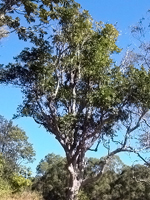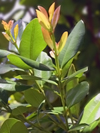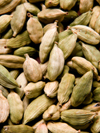For many years, the Amazon forest has suffered greatly due to the impacts of
deforestation, especially for species that are high in commercial value. One
example is Rosewood, a species of the family Lauraceae which was once widely
distributed throughout the Amazon areas but is now facing a serious risk of
extinction due to over-harvesting. Therefore, there is great concern in
aromatherapy that continue using Rosewood essential oil can be contributing
to the destruction of the rain forests. This is very true when the Rosewood
trees are cut down within deep forest areas, where the surrounding forest
cover has to be cleared for transportation causing massive ecological
damage. However, there exist cultivated plantations regulated by the
Brazilian Institute of Environment and Renewable Natural Resources (IBAMA)
to provide sustainable Rosewood, minimizing the problem of deforestation.
At Natural Green, we only import Rosewood essential oil from sustainable
distillers who use cultivated materials for distillation. In addition,
rather than using the heartwood, which has to cut down the whole trees, the
distillation uses branches that are at least 5 cm in diameter. Such oil
promotes no significant difference in terms of fragrance and therapeutic
value compared to that from the heartwood, but was produced in a more
sustainable way. It is highly recommended to use this type of Rosewood oil
for general aromatherapy uses in order to preserve the wild Rosewood stands.
Rosewood essential oil is extensively used not only in famous perfumes and
colognes, but also in many body and skin care products. Its antiseptic and
bactericidal properties make it useful in clearing blemishes and improving
acne, and its gentle, non-irritant nature allow it to be applied even on the
most sensitive skins. More importantly, it is a cellular regenerator. It
stimulates new cell growth, regenerates tissue and diminish lines and
wrinkles. With regular application, it helps to heal scars. Its delightful
fragrance makes it also a popular ingredient in many commercial bath and
deodorant products.
Aside from its beauty benefits, it is an occasional remedy for headache,
especially those caused or accompanied by slightly nausea. Rosewood
essential oil is neither too stimulating nor too sedative. While it clears
the head to promote alertness, it, at the same time, has a steadying effect
on the nerves, and this combination is useful in situations such as job
interviews, exams and long distance driving.
No oil is like Rosewood oil. Its fragrance is complex and cannot be
duplicated synthetically. It has a strong, almost fruity rosy-citrus
aspect dominated by woody and slightly spicy tones. This distinctive and
complex smell is due to the unique combination of percentages of (+) and
(-) isomer, which are difficult to obtain via commercial synthesis or
from alternative plant sources.
Rosewood is a very safe essential oil, being non-toxic, non-irritant and
non-sensitizing.
Do not take essential oils internally or use without the guidance of a
qualified practitioner. The information provided here is for general use
only and is not intended to replace medical diagnosis or treatment.
Pregnant women should always consult their physician prior to using.




























